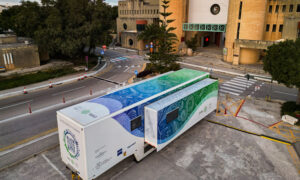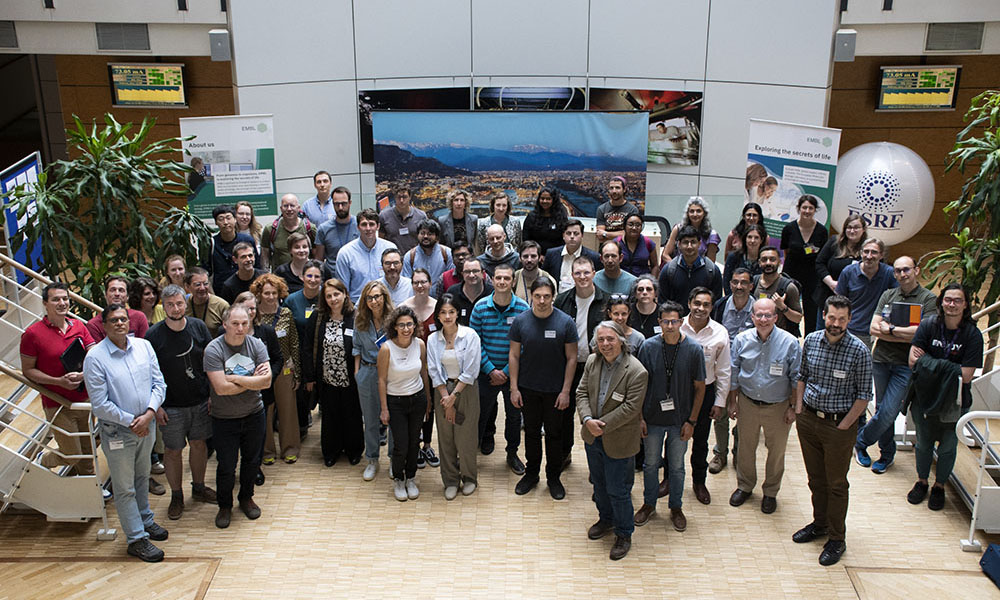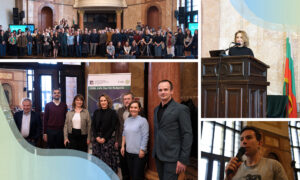
AI approaches in structural biology and drug discovery
EMBL Grenoble and the ESRF hosted a workshop bringing together representatives from research and industry to discuss the ever-growing role of artificial intelligence in the field of structural biology

Artificial Intelligence (AI) is a rapidly expanding field, revolutionising research and opening up new opportunities in structural biology and drug discovery. These developments are happening in both an academic and an industrial context.
The workshop ‘AI approaches in structural biology and drug discovery’, hosted by EMBL Grenoble and the European Synchrotron Radiation Facility (ESRF), and sponsored by the iNEXT Discovery consortium, Instruct-ERIC, and ELIXIR, assembled some of the leading experts in the field to present and discuss recent breakthroughs.
Among the speakers of this two-day event, Adrian Stecula, Head of Structural Cheminformatics at Isopmorphic Labs, presented AlphaFold3 – officially released only a few days earlier – which offers vastly improved and extended predictions of molecular structures. Jannis Born, Research Scientist at IBM, described new tools for computational small molecule design and optimisation, while Ilaria Ferlenghi, Head of Structural Microscopy at GSK vaccines, presented how AI and experimental approaches can be combined to design new vaccines.
The workshop also included contributions from various research groups, with sessions on target identification, high-throughput experimental screening approaches, drug design and optimisation, biologics, and AI approaches for large-scale data analysis.
“The goal of the event was not only to discuss recent developments but also to gather in the same room AI experts with experimental groups that are both generating the data and applying the AI predictions in their research projects,” said José Marquez, EMBL Grenoble Team Leader in charge of the High-Thoughput Crystallisation Facility, and one of the organisers of this workshop. “Judging from the number of representatives from the different types of communities, both in terms of attendants and presenters, the animated discussions, and the feedback we gathered from participants, the event was very successful. We are confident that it will strengthen existing collaborations and create new dialogue related to the development and use of these powerful new technologies.”
The workshop was organised by Jon Agirre (University of York), Evangelia Chrysina (ICB-NHRF), José Antonio Marquez (EMBL), Magali Matthieu (Sanofi-Aventis), Max Nanao (ESRF), Richard Thompson (Thermo Fisher), Carlos Oscar Sorzano (CNB-CSIC), and Sameer Velankar (EMBL-EBI).


